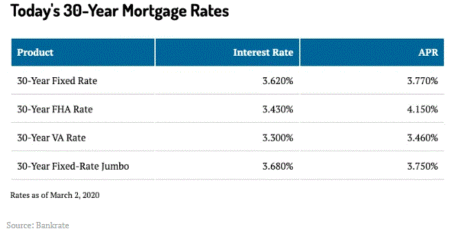Should I buy a turn-key property or invest in a syndication?
Alina Trigub2020-12-27T18:21:05+00:00Should I buy a Turn-Key property or invest in a Syndication?
Recently, we combed through the pros and cons associated with investing actively and passively. The benefits of passive investing range from minimal involvement to less stress to reduced financial risk so it’s easy to understand the appeal. Still, determining the most suitable investment option requires understanding your financial goals, your risk tolerance, and your desired amount of involvement. If you’re currently assessing passive investment options, keep reading! We will be taking a closer look at two types of passive investing, buying a rental property via a turn key provider and investing via apartment syndication.
Define TK
As its name suggests, a turn key (TK) property is one that is readily available to be occupied and has been recently rehabbed. TK providers assist the investor in the acquisition of the property and generally also perform property management services.
TK rentals are designed to require minimal involvement on behalf of the investor, but should not be left on “autopilot.” As the owner of the property, there is always the possibility that an investor will need to become more involved throughout the lifetime of the investment.
For our purposes, we will be referencing a single-family rental property managed by a TK provider.
Define Apartment Syndication
Real estate syndication is the pooling money among investors to acquire an expensive asset, such as, for instance, an apartment building. A syndicator is a general partner in a partnership responsible for the business plan of the investment and it’s full execution. In exchange for a financial investment, the investor receives returns up to and an in excess of their original investment. Due to the nature of syndications, the Securities and Exchange Commission (SEC) has legislation in place that imposes a fiduciary responsibility on syndicators in an effort to mitigate risk on behalf of the investor.
1) How much time should I spend researching?
As a passive investor, performing due diligence on the GP team is the most important part of the process. While there is no hard and fast rule for how much time you should spend researching a TK provider or a deal sponsor in a syndication, the more information and criteria with which you gauge an investment, the higher the likelihood that the investment will meet your expectations. Key research areas that an investor considering a TK property should include are: local market, TK providers, type of property, location, and quality of the property management company (PM). Once you’ve identified a property, it is recommended that you hire a third-party home inspector to assess and provide accurate feedback regarding its condition, verify the numbers (I.e. insurance costs, taxes, projected rental income), and vet the property management services. The quality of the PM will have a direct impact on the success of your investment, so it is best to be thorough on the front end.
On the other hand, a passive investor assessing syndication opportunities should start their due diligence process with researching the deal sponsor. The sponsor’s experience, background, and performance history should be taken into account when determining a syndicator’s quality. Additionally, comparing the syndicator’s strategy, risk tolerance and goals with your own will allow you to make a more informed decision. Trusting the syndicator is an integral part of the investment relationship, so take the time to properly vet the syndicator prior to vetting the market and the investment. Lastly, ensure you understand the partnership structure and agree to its terms, such as the length of the investment, fees, anticipated returns, and voting rights. Move to evaluating the market and then your last step should be evaluating the investment itself to ensure it meets your criteria.
2) Expenses
The expenses associated with acquiring a TK rental property are largely dependent on the market and comparable properties. Due to the property’s recent renovations and tenant occupancy (often arranged by the PM company by the time the property closes), investors will generally pay slightly above fair market value. In some areas, investors may be able to purchase a turn key property for as little as $60,000, while properties in other areas may cost significantly more. Ongoing expenses include property management, which are typically around 10% of the monthly rental income, as well as the cost of the financing the property. The investor is also responsible for all expenses associated with the property, such as taxes, maintenance and repairs, utilities, and legal fees.
The initial investment in an apartment syndication varies depending on the size of the deal, but typically start at $50,000. Fees paid to the syndicator may include an acquisition fee, asset management fees, and disposition fees. An acquisition fee, sometimes referred to as a due diligence fee or sponsor fee, is charged upfront as a percentage of either the investment (5-10%) or the purchase price (2-4%), and in some cases it is charged as a flat fee. An asset management fee is factored in to compensate the sponsor for their time and expertise throughout the course of the investment; this either charged as a flat fee or 1-3% of the monthly rental income or net cash flow. It is paid on a monthly, quarterly or annual basis. Disposition fee is normally paid out when the asset is disposed of. A syndicator’s experience is often reflected in the fees he or she charges to do the deal (less experience may warrant a smaller fee), but the investor should also be mindful of the time, effort and resources required of the syndicator to successfully execute the investment.
3) Income/Potential Return
A well-managed TK property should cash flow as soon as the property closes or shortly thereafter, ensuring immediate returns to the investor. The cash flow is determined by subtracting property management fees, debt service, and other expenses from the rental income. While the monthly cash flow amount varies among properties based on location and expenses, it is a vital piece of information that the investor should discuss with the TK provider and understand prior to acquisition. Although the owner of a recently renovated TK property will have limited ability to add value, parking and storage accommodations may serve as additional revenue streams.
The estimated returns in an apartment syndication are specific to each deal. An equity partner may receive returns throughout the course of the investment, share in the profits when the property is sold, or both. The ongoing returns vary from investment to investment depending on the risk associated with the investment; higher risk warrants a higher return. In addition, an equity partner may share in a percentage of the profits once the property has been sold depending on the deal structure. For instance, an investor who contributes $100,000 to a $1,000,000 deal that profits $120,000 annually should expect $7,000 return on a 7% preferred interest. In this example, once the $70,000 interest has been paid, the remaining profit of $50,000 are distributed to investors and the syndicator based on their split – i.e. a 50/50 split would yield $25,000 to the investors or $25,000 to the syndicator(s).
4) Risks
TK investments are designed to alleviate the headaches involved with managing a rental, but as an owner, it is ultimately your responsibility to supervise the investment and the PM company’s performance. Regularly monitoring your financial returns will help to ensure you are working with an honest and reputable PM company. In the event something is awry, the investor always has the ability to switch PM, should he or she feel that the property is not being effectively managed. There can be additional risk in owning a single-family property due to vacancy rates as a vacant house will not cash flow. Lastly, as a property owner, it is important to implement proper legal protection prior to acquiring a property. A TK property is the riskiest for an investor who does not want to regularly monitor their investment or make executive decisions.
Despite SEC regulation, every investment involves some level of risk. As a limited partner in a syndication, the investor’s risk cannot exceed the amount of money invested in the deal, whereas simple partnerships are not regulated and therefore offer no guarantees. Beyond understanding how to protect yourself as an investor, risk is most strongly correlated with the sponsor. While there are other factors that may influence the project’s trajectory, a sponsor who is coordinating his first or second deal is a considerably higher risk than the syndicator who is performing her 10th or 20th deal.
Conclusion
For an investor seeking a substantial rate of return and some assurance of that return, few investments are entirely passive.
By comparing investment options and the degree of involvement associated with each, there is a higher likelihood of selecting an investment that best meets your needs and most closely aligns with your goals.
While rental properties via TK providers are designed to be hands-off, there are circumstances that may require a moderate level of involvement on behalf of the investor, because at the end of the day, you are the boss. Relatively speaking, apartment syndications are a more passive investment as its performance relies heavily on the sponsor’s efforts and management.
Regardless of the type of investment, it is imperative the investor performs due diligence on a prospective investment in order to manage expectations and make the most suitable decision based on his or her goals.
Note: this article was written in collaboration with Lauren Silva.











